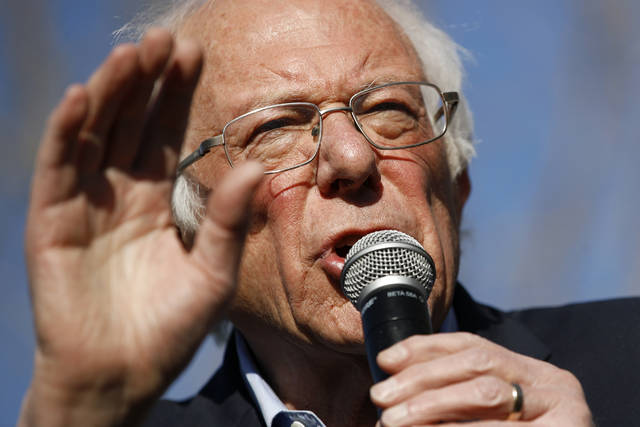“The only thing we have to fear is fear itself.” Eighty-seven years ago, those were the words of Franklin Delano Roosevelt in his 1933 inaugural speech. Today, they resonate with Sen. Bernie Sanders’ presidential campaign, which confronts a barrage of attacks aimed at frightening away voters.
Fear is the enemy of change and the friend of hate. That is why both sides of the political establishment are now running a full-blown campaign of fear-mongering against Sanders.
The Democratic Party establishment likes the economy the way it is and wants to prevent change. Donald Trump and the Republicans have made themselves the party of hate. Both, therefore, have an interest in promoting fear, which explains the strange overlap in their attacks on Sanders.
Let us backtrack a little. After the financial crisis of 2008, we escaped the threat of a second Great Depression, but we failed to address the root causes that have promoted wage stagnation and economic insecurity. The results of that failure have been twofold.
On the economic front, the U.S. has had another stock market boom and an economic recovery that has ameliorated but not remedied past injuries to working families.
On the political front, economic distress and discontent has been exploited by Trump to push his conman agenda which uses hate to blind people to his economic swindle.
Sanders’ economic policies aim to tackle the deep causes of economic and political discontent. That threatens the establishment, which is why he is being red-baited by both Republicans and Democrats.
Far from being red, Sanders’ economic program is straight out of the American mainstream. It echoes FDR’s New Deal, which saved American capitalism in the 1930s.
A higher minimum wage, stronger unions, green infrastructure investment, free public education, higher taxes on the wealthy and reining in corporate power are programs which would have been supported by Presidents Roosevelt and Truman. They are the type of programs the Democratic Party used to advocate before its inside takeover by Wall Street.
The economy is significantly a political creation. Our rotten politics have contributed to making the economy we have, and our rotten politics obstructs us from changing it.
Without political reform, change will be near impossible, which explains Sanders’ call for a political revolution. The influence of money in politics must be reduced, which is why it is critical the Supreme Court’s decision in Citizens United be reversed.
But Sanders is no revolutionary. His political program harks back to the framing of the U.S. Constitution.
A fundamental concern of the Founding Fathers was excessive political power, be it via monarchy or plutocracy; 250 years ago, the problem was monarchy. Today, the problem is plutocracy. Excessive political power is now exercised via corporate political lobbying, payola for politicians and the corporate-controlled media. No clearer proof can be given than the fact that billionaire Trump heads the Republicans, and billionaire Bloomberg aspires to head the Democrats.
We need change to beat hate and restore shared prosperity, but the Democratic Party elite aims to block change by torpedoing Sanders. Worse yet, if they fail to sink Sanders, their “red scare” tactics will have played right into the hands of Trump, who plans an even uglier, more dishonest red scare campaign.
In these dangerous times, the words of FDR can help inoculate us against the politics of fear. When it comes to Bernie Sanders, there is nothing to fear except fear itself.
Thomas Palley is co-editor of the Review of Keynesian Economics.








